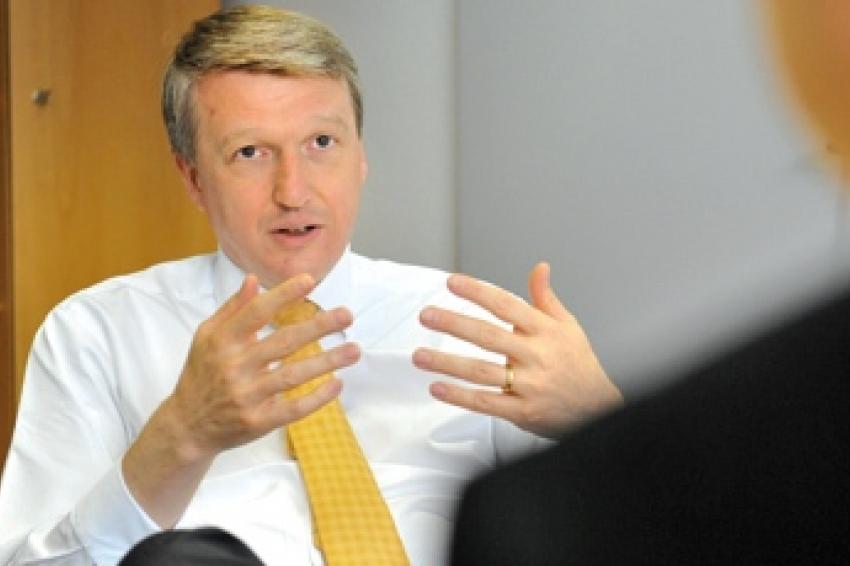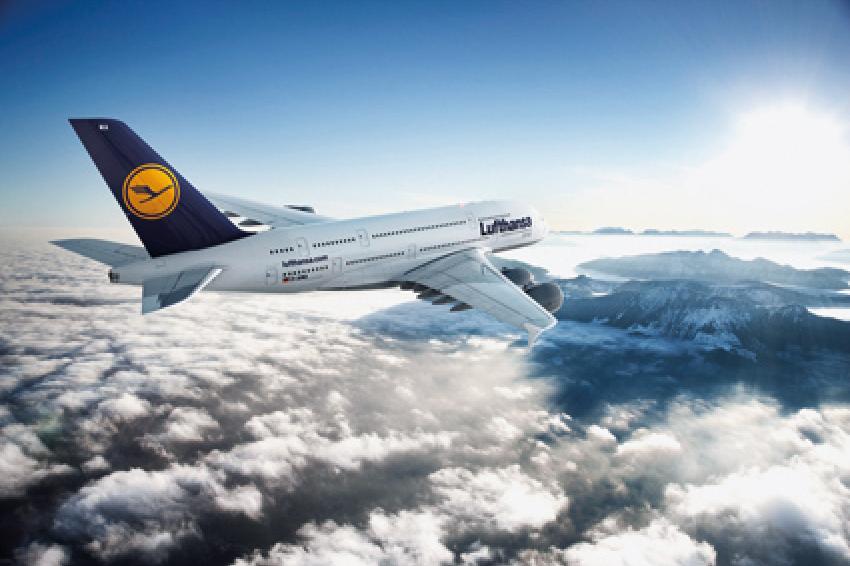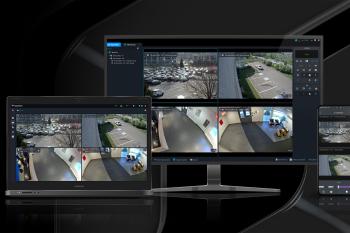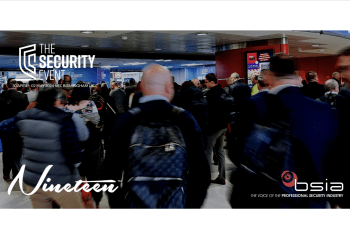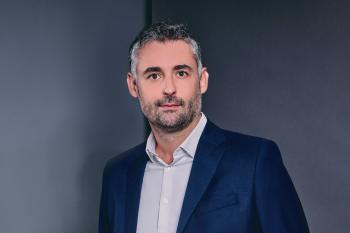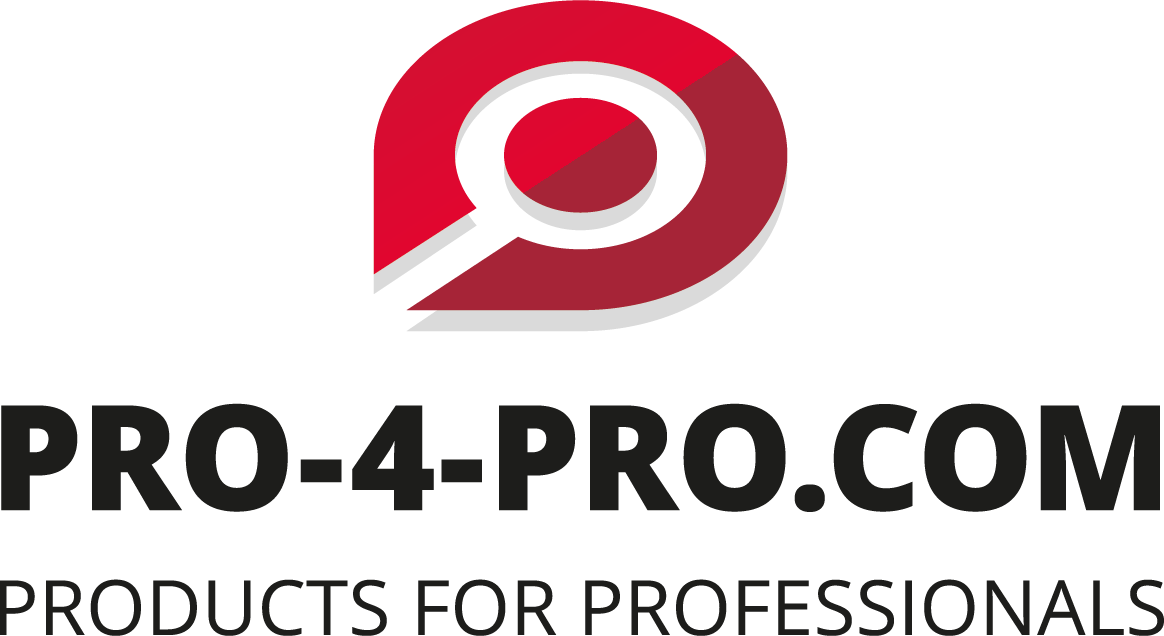Airport Security: Interview with Peter Andres of Deutsche Lufthansa AG
24.05.2012 - Deutsche Lufthansa AG is one of the world's largest corporate groups in the civil aviation industry. The Group evolved in the mid 1990's from the scheduled airline operating under ...
Deutsche Lufthansa AG is one of the world's largest corporate groups in the civil aviation industry. The Group evolved in the mid 1990's from the scheduled airline operating under the Lufthansa trade name. As a scheduled passenger airline, it continues to be operated by Deutsche Lufthansa AG, which acts as both the sole owner and parent company of today's Group. This, Germany's largest airline, is characterised within the Group as Lufthansa Passage Airlines. In 1994, the cargo business was transferred to the subsidiary company, Lufthansa Cargo AG, while aircraft maintenance was transferred to Lufthansa Technik AG. Catering is similarly provided by the Group's own LSG Lufthansa Service Holding AG, which operates under the trade name of LSG Sky Chefs. Deutsche Lufthansa AG is the initiator and founding member of Star Alliance, the world's largest airline alliance. As a highly diversified aviation group, scheduled air traffic remains Deutsche Lufthansa AG's main business area. Among the Group's many subsidiary companies and subcontractors are SWISS, Austrian Airlines and British Midland Airways. Our Editor Heiner Jerofsky, has met Deutsche Lufthansa AG's Head of Corporate Security, Peter Andres, at Frankfurt's Rhein-Main Airport (Lufthansa's home airport) to discuss the responsibilities and safety strategies of a globally operating airline company.
The flight quality and reputation of an airline are directly linked to the concept of security. These high standards apply not only to aircraft, but also to the buildings and systems at ground level. This demands great strategic and organisational effort. How is the Corporate Security division set up, both organisationally and in terms of employees, and how would you define the Group's security objectives?
P. Andres: Lufthansa employs approximately 50 members of staff to look after corporate security - these are more or less equally divided between "traditional areas" of security and the "special area" of aviation security, which demands considerable attention thanks to extensive legislative activities alone. There are also additional security organisations within the subsidiary companies (e.g. Cargo) and Lufthansa's associated airlines (e.g. Swiss). Facility security in Frankfurt (as part of Shared Services) and, of course, a variety of commissioned service providers complete the picture. The aims (unsurprisingly) are to protect Lufthansa's employees, guests and assets against criminal or terrorist activity. As a global player in the airline industry, we also want a hand in formulating legislation on aviation security and to be able to demonstrate our advisory competence for state actors.
One of the primary tasks of Lufthansa's Corporate Security division is to protect the company's entire business operations within the Lufthansa Group and to ensure the safety of passengers and personnel. Can you guide our readers through this mammoth task, using the example of the Rhein-Main Airport?
P. Andres: In Germany, legal responsibility for aviation security rests with the German Federal Government, the German states, airports and airlines. Duties within the terminals at Frankfurt Airport come first and foremost under the responsibility of the German Federal Police and FRAPORT. But this airport is like a town in itself, which means the state police and state authorities, the airlines and customs have considerable responsibilities too. This is reflected in excellent cooperation between all security actors here on the ground.
The greatest threat to air traffic comes from terrorist attacks or hijacking. The security authorities and airport operators go to great lengths to prevent such crimes. How far can Lufthansa help to prevent, recognise and eliminate possible security lapses?
P. Andres: Huge efforts have been made to strengthen the security system in Europe and the USA. We see ourselves as part of this system and are involved in effectively implementing measures and bringing about ongoing improvement in these countries. It's more difficult in many other parts of the world, where we tend to find ourselves alone with our security values, particularly in the airports. In many cases, it's there where we have to supplement available measures with our own activities.
The safety of all property, aircraft and technical equipment - including protection against general criminal activity and other risks - demands well-trained personnel and great technical effort. How do you manage to achieve continually high technical standards, and what qualifications do you require of your employees?
P. Andres: To some extent, we're lucky as our aircraft and systems are frequently located in airports - this means the responsibility for protecting them doesn't have to lie with Lufthansa. Even with cargo operations, we have a sophisticated technical security system to safeguard the large securities stored there.
The subject of aviation security extends across all logistical areas. Air freight handling, special cargo or dangerous goods, and the amount of freight allowed in passenger aircraft, as well as LSG air containers, demand the same care as passenger operations. How can these huge freight quantities be monitored, and what influence does your airline have on security measures for the storage, transport, handling and loading of its aircraft with freight?
P. Andres: The airline has overall legal responsibility for everything that's transported on board. In a personal union, Corporate Security also performs the security duties of Passage-Airline, which means we have to monitor our subsidiary companies (in particular, Cargo and LSG Catering) and other subcontractors respectively. Security regulations for the transport of air freight have been greatly increased in recent time. Appropriate implementation is currently one of the main issues for both ourselves and our security colleagues at LH-Cargo.
What responsibilities and interests does Lufthansa have in terms of guaranteeing and improving aviation security in collaboration with the aviation security authorities?
P. Andres: Collaboration with the authorities is a key responsibility. We have to be effective discussion partners, so that things progress beyond the drawing board. Unfortunately, it often happens that after an event, quick decisions are made and very inefficient "ad hoc measures" are introduced, which then tend to have a long life - take the liquids ban of 2006, for example. Keeping the implementation of legislation practical, while striving for efficiency and innovation, and not losing sight of the facility's competitive ability, require impetus from the airline from time to time ...
Of course, we're also responsible for implementing aviation security regulations via an authority. Achieving this compliance is essential and one of our core tasks. For this reason, we've developed a sophisticated quality assurance system and occasionally face delivering unpleasant messages within the specialist fields of our Group.
The Aviation Security Act has the primary aim of preventing terrorist attacks. The Act authorises and obligates the aviation security authorities, airlines and airport operators to take certain security measures. What specific activities do you expect to see for your airline as a result of this Act, and do you still see this legislation as necessary, timely and adequate?
P. Andres: The stipulations of the Act are sensible. In particular, we're obligated to take certain security measures of our own and to safeguard several sensitive company areas according to the Act's special stipulations. However, it should be stated clearly that it is not only German law, but also European law that's of particular relevance to us. This is because the EU has acquired the regulatory powers for aviation security from EU-member states since 2002, and because the EU standards are directly applicable law in Germany.
For the layperson it's confusing that at airports so many organisations are involved: Ministries of economics, transport, finance and the interior; state and federal police; customs; the public order office; airport security and various private security service providers. What is the cooperation like and do you think this diverse responsibility is sensible, or can you envisage better solutions from the point of view of the airline?
P. Andres: I want to give you a simple answer:
It actually works really well.
You are Deputy Chairman of the AEA (Association of European Airlines) and through this role are heavily involved in political work with the European authorities. Can you describe to us the main focus of this work?
P. Andres: Given how binding European legislation is for us, the work in Brussels is very important from our point of view. The complexity of decision making here is still many times greater than at national level, which is why it's important to constantly liaise with all stakeholders in aviation security, and to keep a close track on the currently laborious and sometimes painful efforts to achieve compromise and progress.
How should readers understand your work as a member of the International Air Transport Association (IATA) within the "Security Executive Group"?
P. Andres: Because air traffic is a global industry, we also have security issues that require global solutions. The IATA is the mouthpiece of the industry, particularly with regard to the ICAO (the UN subsidiary organisation for civil air traffic), which has been advancing the global standard for air traffic safety since the 1950's. Unfortunately in the meantime, there are many cases of overlapping or conflicting security systems within individual countries. This is where we need to make sure we don't end up having to do everything twice, simply to satisfy the ideas of each regulatory authority.
You have been with Deutsche Lufthansa AG for more than 30 years and are familiar with the Group's development and air traffic trends. In your opinion, where do the strengths of this long-established company lie, and what private and professional aspirations do you have for the future?
P. Andres: It's sometimes difficult to talk about strengths, especially when you've been an enthusiastic member of an organisation for so long. If I'm to give you my take on it, I'd say that our strengths lie in being not only a long-established company, but also a very innovative and customer-oriented one. We make continual efforts to improve our efficiency while keeping track of economic targets, and last but not least, we're an organisation with a strong corporate culture.

